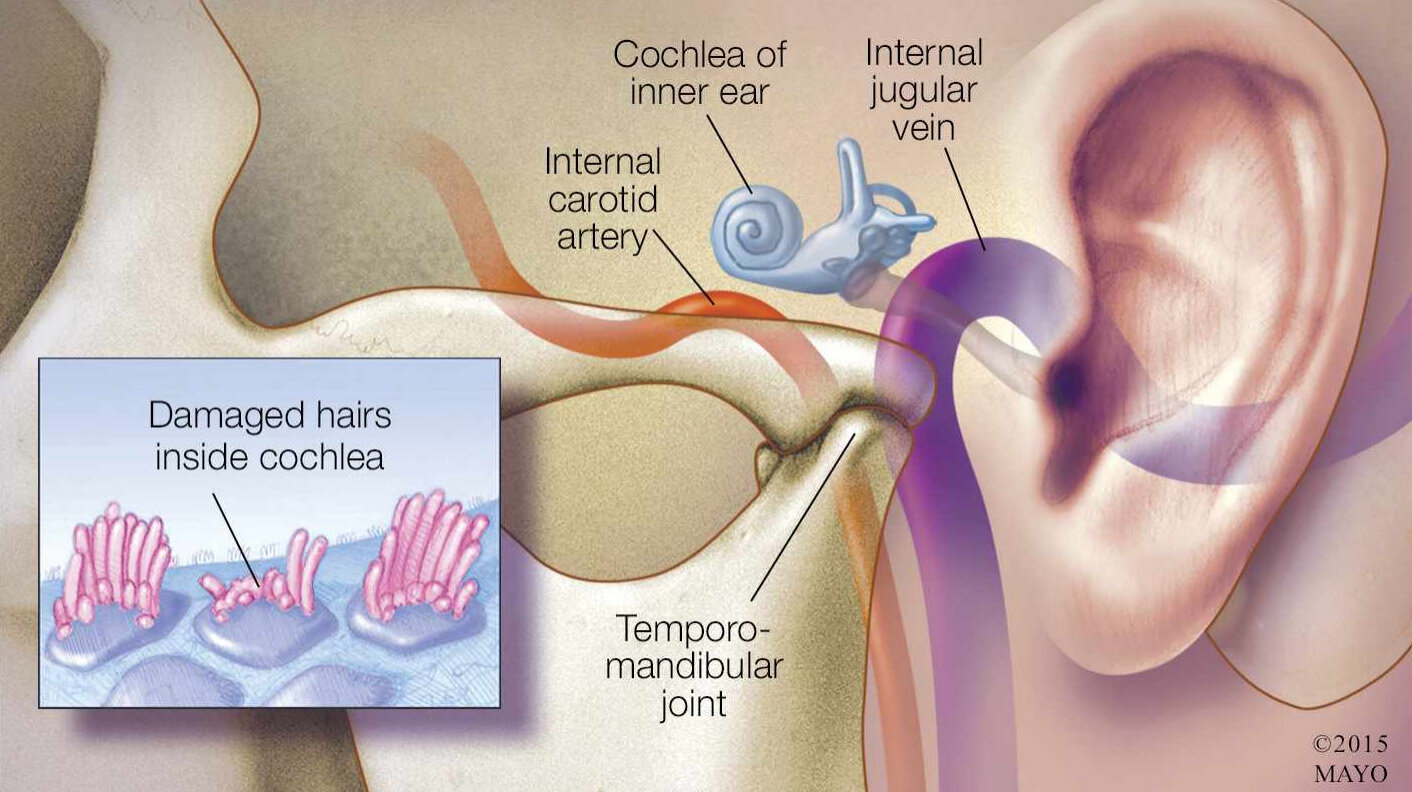View page in: English / Español
What Is Tinnitus?
Tinnitus is hearing a sound without an external source.
While it is commonly referred to as “ringing in the ears,” tinnitus can also be experienced as hearing a buzzing, hissing, whistling, swooshing, or clicking. Stemming from the Latin tinnire, “to ring,” tinnitus can be pronounced TINN-itis or tin-EYE-tis.
It’s important to understand that tinnitus is a symptom, not a condition itself. “It is a symptom that something is wrong in the auditory system, which includes the ear, the auditory nerve that connects the inner ear to the brain, and the parts of the brain that process sound,” according to the National Institute on Deafness and Other Communication Disorders (NIDCD).
Brief, spontaneous tinnitus, lasting seconds to minutes, is experienced by nearly everyone. Temporary tinnitus that lasts minutes to hours routinely happens after excessive noise exposure. While it usually resolves on its own, the tinnitus is a sign that the ear has been damaged by the loud sound. Chronic tinnitus occurs for three months or longer.
How Common Is Tinnitus?
Excess noise can damage sensory hair cells in the inner ear, leading to reduced sound input to the brain. One theory about why tinnitus occurs is that the brain then tries to make up for the lost input by filling in sounds. Credit: Mayo Clinic
The Centers for Disease Control and Prevention estimates that up to 50 million Americans experience some form of tinnitus. Roughly 20 million people struggle with chronic tinnitus that can be bothersome to everyday life, while 2 million have extreme and debilitating cases. New research in Nature Communications Medicine from October 2021 shows the virus that causes COVID-19 can infect the inner ear, which may help explain reports of tinnitus and hearing loss among COVID-19 patients. Researchers are investigating any link between COVID vaccines and tinnitus, with a 2022 review in the Annals of Medicine & Surgery concluding, “Despite the incidence of adverse events, the benefits of the SARS-CoV-2 [COVID] vaccine in reducing hospitalization and deaths continue to outweigh the rare ramifications.”
Learn More:
What Is Tinnitus?
What Causes Tinnitus?
Diagnosing Tinnitus
Tinnitus Treatments
Effect on Daily Life
Tinnitus News and Research
Begin Your Subscription to Our Free Magazine



